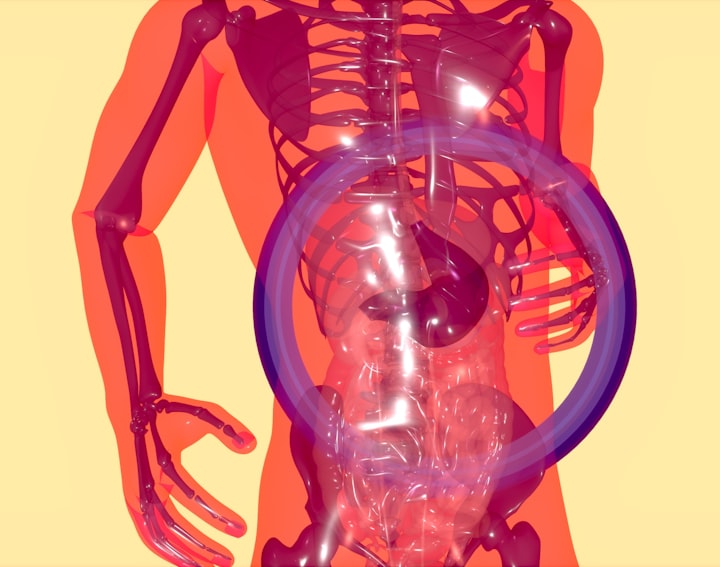New research suggests that issues with digestion could serve as a warning sign of Parkinson's disease.
The findings offer additional evidence to support the notion that there exists a strong correlation between the brain's well-being and the functionality of the digestive system.

Digestive issues can increase the likelihood of developing Parkinson's disease. A study has found that patients with gut problems, such as constipation or difficulty swallowing, are at a higher risk of developing the condition. Previous studies have already established a connection between the gastrointestinal tract and conditions like Alzheimer's disease, strokes, and brain aneurysms. While there is evidence to suggest that Parkinson's disease may also originate in the gut, there have been limited studies exploring its relationship with specific digestive disorders.
The recent study, however, has identified four gut conditions that could potentially act as early warning signs of Parkinson's disease. The authors of the study conclude that it is the first to provide substantial observational evidence that a clinical diagnosis of gut issues may specifically predict the development of Parkinson's disease. To conduct the study, researchers analyzed the medical records of 24,624 individuals in the US with Parkinson's, 19,046 individuals with Alzheimer's, and 23,942 individuals with cerebrovascular disease. They compared the frequency of gastrointestinal conditions in the six years leading up to the diagnosis of Parkinson's disease, matching patients with Parkinson's to those in the other groups based on age, sex, race, ethnicity, and length of diagnosis.
The researchers also compared the medical records of individuals diagnosed with any of 18 different gut conditions to those without the specific condition over a five-year period. This comparison aimed to determine the number of individuals who developed Parkinson's disease or other neurological disorders. Both comparisons revealed a higher risk of Parkinson's disease diagnosis for patients with gut issues. Individuals experiencing constipation, difficulty swallowing (dysphagia), and gastroparesis (a condition where food moves slowly from the stomach to the small intestine) were more than twice as likely to develop Parkinson's disease in the five years leading up to diagnosis. Additionally, individuals with irritable bowel syndrome (IBS) without diarrhea faced a 17% higher risk.
Certain gastrointestinal symptoms, such as functional dyspepsia (a burning sensation or fullness of the stomach without an obvious cause), IBS with diarrhea, and diarrhea with fecal incontinence, were found to be more prevalent among patients who later developed Parkinson's disease. However, these symptoms were also more common prior to the onset of Alzheimer's disease, strokes, or brain aneurysms. On the other hand, gut issues like inflammatory bowel disease did not increase the likelihood of developing Parkinson's disease, according to the study. The researchers also calculated that patients who had their appendix removed were less likely to develop Parkinson's. Based on these findings, the authors suggest that healthcare professionals should be vigilant about gut issues in patients at a higher risk of Parkinson's disease. They also call for further investigation into the links between gastrointestinal conditions and other conditions like Alzheimer's, strokes, and brain aneurysms.
Parkinson's UK estimates that by 2030, there will be approximately 172,000 people in the UK living with the disease. Globally, the World Health Organization reports that there are currently 8.5 million individuals affected by Parkinson's. In response to the findings, Clare Bale, associate director of research at Parkinson's UK, stated that the research adds further weight to the growing evidence that gut problems may serve as early warning signs of Parkinson's. She believes that understanding the appearance of gut issues in the early stages of Parkinson's could lead to opportunities for early detection and treatment approaches targeting the gut to improve symptoms and potentially slow or halt the progression of the disease.
Kim Barrett, vice-dean for research at the University of California, Davis

The investigation of the origin of Parkinson's disease within the human body is a topic of great interest. Lewy bodies, which are protein clumps that form within dopaminergic neurons responsible for producing dopamine, are a major component of Parkinson's disease. These clumps are believed to contribute to the loss of dopaminergic neurons and the onset of the disease's characteristic motor symptoms. However, many patients experience nonmotor symptoms, such as constipation, many years before motor symptoms begin, suggesting that brain cell death may occur in the later stages of the disease.
Based on these findings, it has been suggested that alpha-synuclein-related disease begins in the enteric nervous system (ENS), which controls the digestive tract, and spreads to the brain via the vagus nerve. The vagus nerve is the longest nerve in the body's autonomic nervous system, which controls regulatory functions such as breathing, digestion, and heart rate.
Several studies support a role for gut inflammation in the early stages of Parkinson's disease. For example, people with inflammatory bowel disease have a higher risk for Parkinson's disease, and their treatment with anti-inflammatory therapies leads to a marked reduction in the incidence of the disorder.
Furthermore, in the first decade after diagnosis, Parkinson's disease patients typically test positive for immune T-cells that recognize a fragment of alpha-synuclein (alpha-synuclein32-46). The blood of Parkinson's disease patients often contains immune cells that are primed to attack the neurons, but it is unclear where or when they are primed.
In a 2017 study, this team of researchers demonstrated that T-cells responding to the alpha-synuclein fragment were present in Parkinson's disease patients who carried HLA-DRB1∗15:01, a gene associated with several autoimmune diseases, including multiple sclerosis (MS).





Comments
There are no comments for this story
Be the first to respond and start the conversation.